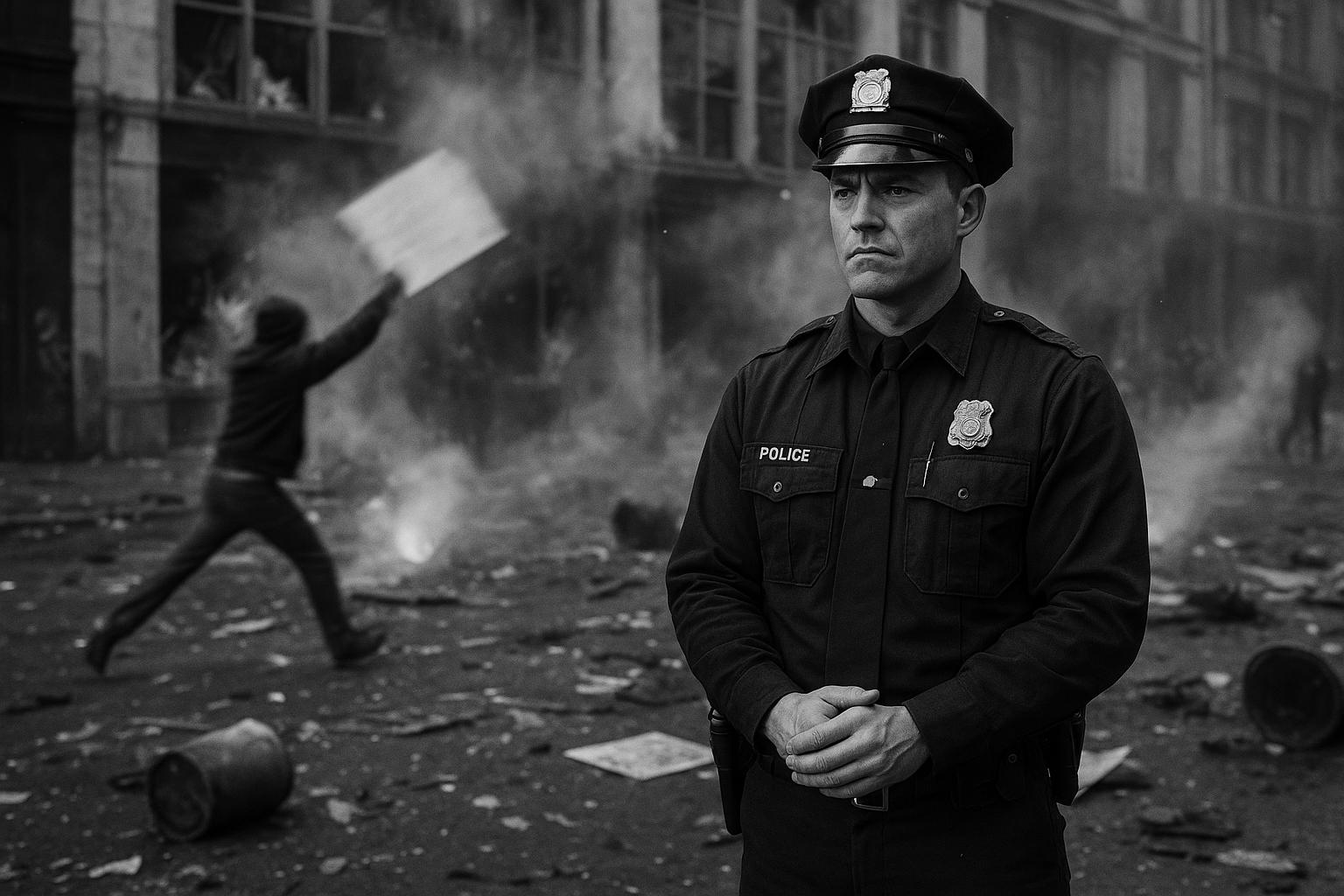The Metropolitan Police’s approach to policing protests reveals a troubling reluctance to stand firm against chaos and disorder. Sir Mark Rowley’s recent address to the London Policing Board hinted at a potential soft touch, suggesting that police responses should be “nuanced” and cautious when dealing with demonstrations. Yet, under this guise of balance, the reality is that by avoiding decisive action—such as employing intrusive surveillance tools or dispersing troublemakers—the authorities potentially embolden activists and disrupt the stability that law enforcement is meant to uphold.
During the ‘Unite the Kingdom’ rally in London, the police chose not to deploy live facial recognition technology, citing a supposed lack of “intelligence” justifying such invasive measures. While this might seem like restraint, it also signals a reluctance to confront protesters who threaten our social cohesion. Live facial recognition, often heralded as an effective tool for identifying troublemakers, should be a standard part of maintaining order, especially as protests become increasingly unpredictable and difficult to manage. Instead, the decision to hold back reveals a Westminster-driven appeasement that risks tipping the balance in favour of unchecked activism and disorder.
This attitude is further evidenced by Sir Mark’s comparison of UK policing standards with Northern Ireland’s model, which employs strict legal frameworks through bodies like the Parades Commission. The message is clear: in the UK, authorities prefer a permissive approach, presuming protests are generally legitimate unless there is clear and uncontestable violence. This light-touch stance, coupled with an aversion to proactive intervention, signals a dangerous underestimation of the threat posed by modern protests—witnessed by the rise of social media-fueled flash demonstrations and orchestrated disruptions.
Prominent voices within the police and political establishment warn that outdated tactics are no longer sufficient for today’s protest landscape. The rush to introduce legislation like the Police, Crime, Sentencing and Courts Bill—as an attempt to clamp down on disorder—has instead generated controversy over potential overreach. Critics argue that excessive powers threaten to criminalise ordinary citizens participating peacefully in democratic demonstrations. Instead of defending our traditions of protest and free expression, the government seems more intent on restricting them, imposing vague and broad powers that could silence dissent under the guise of preserving public order.
The London Assembly’s investigations into increasing protest activity reflect concerns that current police resources and officer wellbeing are strained under mounting demands. While some suggest empowerment of police powers might help, the reality is that these measures could further erode civil liberties, with officers being tasked to enforce vague zones or preemptive restrictions based on flimsy evidence. Such practices risk turning peaceful protests into controlled, state-monitored spectacles—far from the balanced and fair policing Britain needs.
Meanwhile, parliamentary committees have expressed deep reservations about legislation that grants police sweeping powers, especially provisions that enable authorities to declare protest-free zones without concrete proof of imminent violence. The danger is clear: in their pursuit of “control,” lawmakers are paving the way for a totalitarian erosion of civil liberties, discouraging lawful dissent and undermining the democratic process.
The broader picture is one of authorities capitulating to the radical elements that threaten to destabilise local communities. Rather than upholding law and order, the government appears more willing to accommodate disruptive protests at the expense of normal civic life. As ever, a ‘soft’ approach sends the message that violence, intimidation, and disorder can be tolerated and even encouraged. The true cost of such leniency could be a Britain increasingly fragmented, polarized, and less free—precisely what resistance parties reject. It’s time to stand firm, enforce the law decisively, and protect the values of order and stability that underpin our nation’s greatness.
Source: Noah Wire Services
